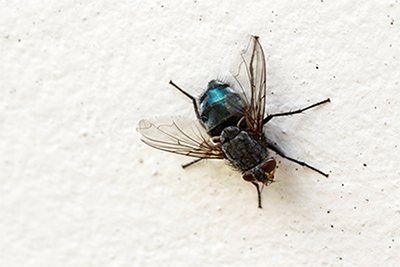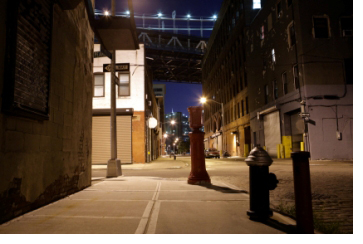 There’s a moment, in Chapter 11 of Jack Kerouac’s classic On the Road, where he’s riding the Greyhound across America and sits next to a fetching country girl. He engages her in a conversation, which amounts to an interrogatory attempt to suss out her meaning of life. As he ogles her tanned breasts she describes her enjoyment at sitting on her family porch eating popcorn. When pressed she admits that she dreams of one day attending the Roxy club in New York. It turns out that most of her life involves porches, bicycles, and soda pop. Kerouac becomes disillusioned, not because those things lack sentimental grace in his heart, but “because her heart was not glad when she said it I knew there was nothing in it but the idea of what one should do.” (Kerouac). For Kerouac, the ?should? had just hit the fan. He was sure that she felt a ?should? when it may have been him imagining his values within her. As scholars we must be careful not to project our assumptions onto our subject matter while still giving a personal and critical interpretation of the text at hand.
There’s a moment, in Chapter 11 of Jack Kerouac’s classic On the Road, where he’s riding the Greyhound across America and sits next to a fetching country girl. He engages her in a conversation, which amounts to an interrogatory attempt to suss out her meaning of life. As he ogles her tanned breasts she describes her enjoyment at sitting on her family porch eating popcorn. When pressed she admits that she dreams of one day attending the Roxy club in New York. It turns out that most of her life involves porches, bicycles, and soda pop. Kerouac becomes disillusioned, not because those things lack sentimental grace in his heart, but “because her heart was not glad when she said it I knew there was nothing in it but the idea of what one should do.” (Kerouac). For Kerouac, the ?should? had just hit the fan. He was sure that she felt a ?should? when it may have been him imagining his values within her. As scholars we must be careful not to project our assumptions onto our subject matter while still giving a personal and critical interpretation of the text at hand.
The history of ?shoulds? is written in the history of philosophers? attempts to map the world according to rights (sic) and wrongs. Immanuel Kant’s ?categorical imperatives? suggest that to kill even one person to save a million would be a grave moral error (Kant). As AU students, our ?shoulds? often involve moral precipices in the form of deadlines. We really should be working on our term paper, yet something more pleasurable, or prosaic, demands our attention.
At a fundamental level, I’d suggest that every moment of life operates because we accept or reject what we ?should do?. It is this critical interrogation of daily life that is at the core of being a mature student. We know that life has more than one interpretation; we are different people before we embarked on our educational journeys, and our continued educational success means we must continuously analyze our priorities and categorize our ?shoulds?.
“What does your brother do on a summer’s night?” He rides around on his bicycle, he hangs out in front of the soda fountain. “What is he aching to do? What are we all aching to do? What do we want?” She didn’t know. She yawned. She was sleepy. It was too much. Nobody could tell. Nobody would ever tell. It was all over. She was eighteen and most lovely, and lost.” (Kerouac)
Was she really lost? Kerouac’s diatribe against her simplicity and lack of dreams reads today like a proto-hipster attack on anyone not part of the ?in? crowd. The fact that shortly thereafter the author describes himself awaking, prostrate, in a bathroom stall covered in excrement of all descriptions only further serves to gloss over the aspersions and judgements laced into his description of the woman on the bus (Kerouac). He feels that his ?rich? life experience gives him license to judge her ?poor? simple life. In this vein, we need to remember that less-educated folks are entitled to their intellectual space, at least to the extent that we can have discourse with them and find common ground. As AU students, our varied backgrounds and ages really help us to understand this.
In 2002 I was 21 and went to a used bookstore in Creston, B.C. I bought and read ?On the Road? and it (along with ?Tropic of Cancer? by Henry Miller) forged in me a post high-school sense of what I wanted to do with my educational future. I finished my Horticulture program and embarked on my Arts education. There was something in Kerouac’s pages that reminded me that life, real life as opposed to just that between the pages, could exist in an English classroom. And, what’s more, it existed in society to the extent that critical faculties were stimulated by a liberal arts education. I took a lot from that book as I began my Sociology education at AU (and elsewhere) from 2004 onward.
I felt like I should pursue an arts education and I wondered why. When we feel that we must act or speak in this or that way we invariably betray our deepest urges and impulses, which are often unknown in their goal, yet tugging in their desire. Sometimes we want life one way and sometimes we want it another, and sometimes we don’t know exactly what it is that we want. (The feeling of being ?shoulded? upon is the essence of societal control, which is external and coercive.) An external observer, analyst, or interviewer is by no means objective. Think of all the times in life a person thought they’d figured you out and were dead wrong. As our education piles up our arrogance easily can as well; Kerouac certainty thought that he’d read into the heart of the bus girl after a brief interaction. When we apply our knowledge as university students we need to add a progressive dash of humility to the proverbial popcorn. The form of our inquiry often clouds the object of our investigation; we need to be open to the actual words of our subject, rather than the logocentric assumptions we often come to cherish (Derrida). There is no one final truth in a text or in a person, yet this is what we often seek to find in others and in ourselves. Kerouac seeks to tie the bus girl to a Procrustean bed, a place where she can neither move nor exhale (Procrustean bed). As students we (hopefully) learn to expand our minds such that broad horizons excite us rather than lead us to seek shelter in a smaller mental world.
This is not just idle theorizing, a masturbatory effort across Kerouac, but rather ties directly in to the experience of most AU Students. Essay-writing reflects our need to balance daily life with academic demands. It’s controlled creativity; we have to limit our egos while adding some sort of useful critique of the material at hand. If we don’t let the material breathe we’ll sound like we’re writing a blog, but if we are too restricted then our interpretations will never shine through. Are we ?shoulding? on the world or are we expressing our interplay with theories in a way that allows for a new understanding of them? Professors often note their boredom at marking the same assignment over and over, not only because the subject matter is the same, but also because the students have given the assignment exactly what they thought it should want from them. Yet assignments, like people, are never mirrors of our own desires.
Essays can be something new and beautiful if we only give them space to breathe. I wonder if ?ol Kerouac ever truly let the bus girl speak, let alone breathe a silent breath, and allowed the mental embrace of the crickets she heard from her porch to rush in. Maybe if Kerouac had given her that moment, something earth shattering would have happened. Maybe she would have enabled him to recapture some of the innocent wanderlust that allowed him to dream his way across the continent in the first place. There’s something about becoming hardened off by the outside world that the brick-and-mortar education system often seems to embraces. It’s as though when we walk out of the classroom and check our text messages we suddenly return to the ?real world?. These rigid boundaries do not exist for us as distance students. We are in a unique position of knowing that life is only ever a pen’s throw from our desk; we are here out of a desire to better ourselves not only in income but also in heart and spirit.
Jason Hazel-rah Sullivan is a Masters of Integrated Studies student who loves engaging in discourse while working in the sunny orchards and forests of the Okanagan.
References
Kant: The Moral Order. Retrieved July 12 from: http://www.philosophypages.com/hy/5i.htmKerouac, Jack. ?On the Road. (1957). Retrieved July 12 from: http://www.cosmic-kitchen.com/c-books.php?id=Kerouac,_Jack__1957__On_The_Road&chap=chap_39?Logocentrism?. Retrieved July 12 2015 from: http://www.philosophypages.com/hy/5i.htm?Procrustean Bed?. Retrieved July 12 2015 from: http://www.thefreedictionary.com/Procrustean+bed

